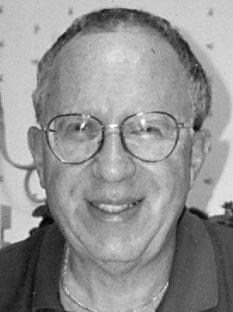By Bob Harris
MillionTreesNYC is working hard to plant a million trees by 2017 by planting one tree at a time. On Jan. 29 at the American-Israel Friendship Grove in Flushing Meadows Corona Park, the consulate general of Israel in New York, the Queens Jewish Community Council and the city Parks Department planted a tree in celebration of the Jewish holiday of trees, Tu’ Bishvat. This new tree will be counted as part of the MillionTreesNYC program.
“Israel is the green spot in the Middle East. Like New York City, Israel is known for its innovations in green technologies and for its programs to develop environmentally conscious, green cities,” said Deputy Israeli Consul General Benjamin Krasna.
Coordinating the event was Queens Parks Department official Estelle Cooper, who spoke of the value of trees to the environment and the pleasure of partnering with the Israeli consulate general.
In Israel, it is customary to plant trees on Tu’ Bishvat and annually more than 1 million Israelis take part in tree-planting activities. In Queens, many civic associations partner with their local parks and participate in maintaining and planting trees in them and on their streets.
The planting of trees in the city can increase its urban forest, which is made up of street trees, park trees and trees on public, private and commercial land by an amazing 20 percent, thus achieving many quality-of-life benefits that come with planting trees. Since MillionTreesNYC was launched in October 2007, more than 300,000 trees have been planted.
The event started on the second floor of the Queens Museum in Flushing Meadows overlooking the America-Israel Friendship Grove, which is between the building and the Unisphere. After refreshments and speeches, the attendees went to the grove and took photos in front of the tree being planted.
Historically speaking, the museum served as the location of the first session of the United Nations General Assembly in 1946. One of the first acts of the assembly was to pass a resolution creating the State of Israel.
While the planting of trees is a priority in Flushing Meadows, there is a controversy about trees in the Ridgewood Reservoir, which straddles Queens and Brooklyn. The reservoir was a real reservoir, but when it was no longer needed to supply water to the city it was abandoned and nature took over the area. Trees have filled in where water once stood; plants, birds and insects now flourish here; and it is a flyby for migratory birds.
There have been several public hearings about what to do with this wild refuge. The topic was also discussed at meetings of the Coalition for Parks and Green Spaces held at the Overlook in Forest Park. Local people want the Ridgewood Reservoir left wild as a serene place where people can visit, relax and see nature up close. There had been talk of cutting down foreign trees and planting native trees, but this would have been at a huge expense.
Some people want some areas of the reservoir denuded of trees and vegetation to create more playing fields, but conservationists said there are many playing fields nearby that have been renovated. Community Board 5 has submitted a seven-point plan that includes a seven-foot high, wrought iron fence to protect the Ridgewood Reservoir, the construction of a pedestrian bridge over high-traffic Vernon Place so people can get to the reservoir basins and not too much lighting so as not to disturb the wildlife while providing light for people in the early evening.
It seems a terrible waste of what nature has provided for city folk if any of the wild areas of the Ridgewood Reservoir were wantonly destroyed. CB 5 would eventually like some kind of boardwalk down in the basins for exploratory and educational purposes. Local legislators and community groups are in support of the CB 5 plans for leaving the reservoir natural.
GOOD AND BAD NEWS OF THE WEEK: Considering all the crime stories printed and broadcast by the media, the positive story of cabbie Asadujjaman Mukul deserves to be retold.
This Bangladesh-born pre-med student who would like to work in the pharmaceutical industry found a bag in his cab left by a 72-year-old Italian visitor filed with $21,000 in euros and other documents. He found an address in the bag and drove out to Patchogue, L.I., to return the money and documents. A good story.

































